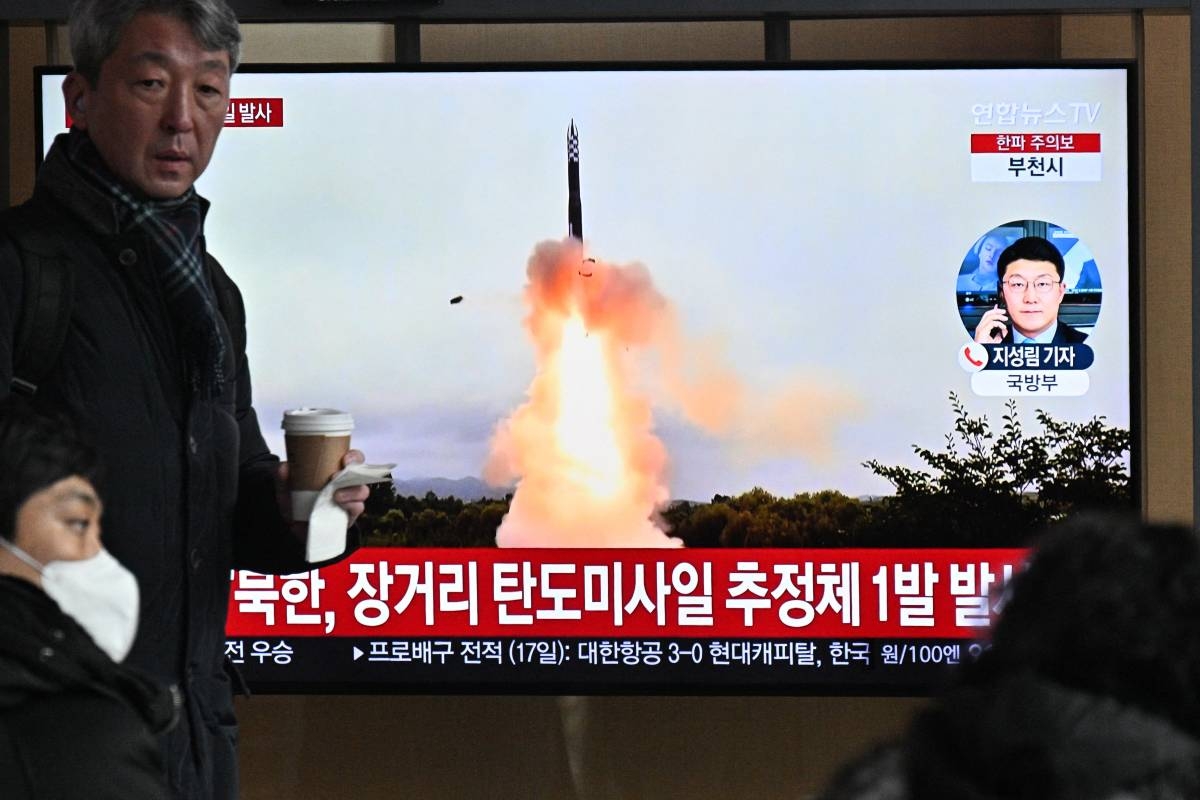TOKYO: President Ferdinand Marcos Jr. on Monday joined Japan and his fellow leaders from the Association of Southeast Asian Nations (ASEAN) in condemning North Korea’s firing of an intercontinental ballistic missile into the Sea of Japan.
In his speech during the meeting of Asia Zero Emission Community leaders here, Marcos described North Korea’s move as “dangerous and provocative” as it destabilizes the region and the world.
“We join Japan, together with the rest of ASEAN, in condemning the continued threat that the launching [of] ballistic missiles by the DPRK [Democratic People’s Republic of Korea] represents,” Marcos said. “Such dangerous and provocative actions by the DPRK threaten and destabilize the region and the world.”
“The Philippines joins its voice to all our partners in peace in condemning this looming existential threat,” he added.
North Korea fired a long-range ballistic missile, which supposedly fell into the sea west of Hokkaido, according to Japan’s coast guard.
Japan’s Defense Ministry said the weapon, believed to be an intercontinental ballistic missile, flew for about 73 minutes before splashing down.
The launch came after warnings from officials in Seoul and Tokyo that nuclear-armed North Korea was preparing to test-fire a missile, including one of its longest-range intercontinental ballistic missiles this month.
All of North Korea’s ballistic missile activities are banned by United Nations Security Council resolutions, though Pyongyang defends them as its sovereign right to self-defense.
President Ferdinand Marcos Jr. of the Philippines has joined Japan and leaders from the Association of Southeast Asian Nations (ASEAN) in condemning North Korea’s recent firing of an intercontinental ballistic missile into the Sea of Japan. Speaking at the meeting of Asia Zero Emission Community leaders in Tokyo, Marcos labeled North Korea’s actions as “dangerous and provocative,” emphasizing the destabilizing impact they have on both the region and the world.
Marcos expressed solidarity with Japan and ASEAN in denouncing the continued threat posed by North Korea’s ballistic missile launches. He emphasized the potential danger and destabilization caused by such actions, calling them a looming existential threat that must be condemned by all partners in peace.
The missile launched by North Korea reportedly fell into the sea west of Hokkaido, according to Japan’s coast guard. The Japanese Defense Ministry confirmed that the weapon, believed to be an intercontinental ballistic missile, had flown for approximately 73 minutes before landing in the sea. Prior to the launch, officials in Seoul and Tokyo had issued warnings about North Korea’s intentions to test-fire a missile, possibly one of its longest-range intercontinental ballistic missiles.
It is important to note that all of North Korea’s ballistic missile activities are prohibited by United Nations Security Council resolutions. However, Pyongyang asserts that these actions are within its sovereign right to self-defense.
President Marcos’ condemnation of North Korea’s missile launch highlights the international concern and united front against the destabilizing actions of the DPRK. By joining Japan and ASEAN in denouncing these actions, the Philippines reinforces its commitment to peace and stability in the region.
The launch serves as a reminder of the ongoing challenges posed by North Korea’s nuclear ambitions and its willingness to defy international norms. The international community must continue to address this threat collectively, utilizing diplomatic channels and enforcing existing resolutions to discourage further provocations.
Efforts to maintain peace and stability in the region require collaboration and cooperation among nations. President Marcos’ condemnation of North Korea’s missile launch demonstrates the solidarity of ASEAN and its commitment to upholding regional security.
In conclusion, the international community, including President Marcos and leaders from Japan and ASEAN, strongly condemns North Korea’s recent missile launch. The actions of the DPRK pose a dangerous and provocative threat to the region and the world. It is crucial for nations to work together to address this threat and maintain peace and stability in the region.
Source: The Manila Times








